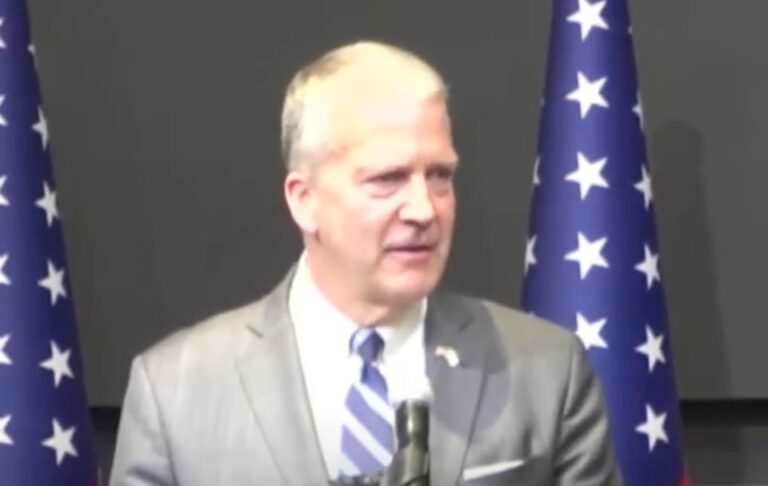NOAA Fisheries on Thursday announced a 90-day finding on a petition to list Gulf of Alaska Chinook salmon “or any evolutionarily significant unit that may exist in the petitioned area, as a threatened or endangered species under the Endangered Species Act and to designate critical habitat concurrent with the listing.”
The listing proposal comes after pressure from the Wild Fish Conservancy in Seattle, which filed a petition in January calling for federal protection of Alaska Chinook.
“For decades, scientists have been sounding the alarm that Alaska’s Chinook are in dire trouble,” said Emma Helverson, executive director of the Wild Fish Conservancy. “Despite existing management plans and years of efforts by the state of Alaska, Chinook salmon continue to decline in abundance, size, diversity, and spatial structure throughout the state. Through this action, we are asking the federal government to undertake a formal status review and implement protections warranted under the Endangered Species Act, including designating critical habitat protections, to ensure the survival of these iconic fish.”
The proposed safeguards would increase protection for imperiled Chinook populations from the Canadian border north to the Aleutian Islands, including watersheds of Southeast, Cook Inlet, and Southcentral Alaska. In other words, most of the Alaska Chinook salmon.
NOAA said, “We find that the petition, viewed in the context of information readily available in our files, presents substantial scientific or commercial information indicating that the petitioned action may be warranted. Therefore, we are commencing a review of the status of Gulf of Alaska Chinook salmon to determine whether listing under the ESA is warranted. To ensure that the status review is comprehensive, we are soliciting scientific and commercial information regarding this species from any interested party.”
Sen. Lisa Murkowski released a statement in response:
“Alaska’s king salmon need help, but an ESA listing based on a flawed petition from a Seattle-based environmental activist group is the wrong way to go. Should NMFS determine that Alaska’s Chinook be listed after conducting their 12-month review, it would be nearly impossible for king salmon from the Gulf of Alaska to be caught for commercial and recreational purposes, and perhaps even subsistence. Even this action on the 90-day finding will have a dangerous chilling effect on investment in our fishing industry at a time when they can least afford it.”
“Incredibly, NOAA is moving ahead even after finding that the Wild Fish Conservancy’s petition ‘contained numerous factual errors, omissions, incomplete references, and unsupported assertions and conclusions.’ As we fight to save our salmon and salmon fisheries alike, we need to rely on the best available science, instead of half-baked petitions intended to get conservation groups a foot in the door to attack our fisheries and resource development.”
In response to a petition to list Gulf of Alaska Chinook salmon as threatened or endangered under the Endangered Species Act, NOAA Fisheries has found that listing may be warranted. We filed a positive 90-day finding in the Federal Register, which is a threshold determination based mainly on the contents of the petition itself. It triggers a more in-depth review to determine whether listing is warranted.
The full statement from NOAA reads:
On January 11, 2024, we received a petition from the Wild Fish Conservancy to delineate and list one or more evolutionarily significant units of Chinook salmon in southern Alaska as threatened or endangered. It also requested that we designate critical habitat concurrently with the listing.
According to the Conservancy, the petition “encompasses all Chinook populations that enter the marine environment of the Gulf of Alaska.” It “includes all populations on the southern side of the Aleutian Peninsula, Cook Inlet, and the coast of Alaska south of Cook Inlet to the southern end of the Alaska/British Columbia border.”
We interpret the request as asking us to consider populations of Chinook salmon on:
- Southern side of the Alaska Peninsula, including Kodiak Island, Cook Inlet, Prince William Sound
- Gulf of Alaska coastline
- Inside waters of Southeast Alaska to the United States/Canada border
The Endangered Species Act requires the Secretary of Commerce make a finding within 90 days on whether a petition presents substantial scientific or commercial information indicating the petitioned action may be warranted.
The 90-Day Finding
To make a 90-day finding on a petition to list a species, we evaluate whether it presents substantial scientific or commercial information indicating the species may be either threatened or endangered. At this stage, we do not conduct additional research, and we do not solicit information from outside parties to help us evaluate the petition.
We have reviewed the petition, the literature cited in the petition, and other literature and information available in our files prior to receipt of the petition. We found that the information present in the petition contained numerous factual errors, omissions, incomplete references, and unsupported assertions and conclusions. Still, we considered missed escapement goals in recent years for many stocks in the petitioned area, and evidence of decreasing size and age at maturity. We concluded that the petition contained enough information for a reasonable person to conclude that the petitioned action may be warranted.
With the positive 90-day finding, we are commencing a review of the status of Gulf of Alaska Chinook salmon to determine whether listing is warranted. We will convene a status review team of federal scientists to begin an in-depth review of the species’ current status and extinction risk. We will include input from non-federal experts by inviting them to participate as guest consultants to the team as part of a broad-based gathering of information.
“The Alaska Department of Fish and Game has tremendous expertise in salmon biology and management in Alaska,” said NOAA Fisheries Alaska Regional Administrator Jon Kurland. “In particular, we will seek technical assistance from our state partners on Chinook biology, genetics, and relevant risk factors.”
The status review team will collect and analyze the best available scientific and commercial information on the species to evaluate its current status and extinction risk, including:
- Biology
- Ecology
- Abundance and population trends
- Traditional Knowledge
- Threats to the species
The team will develop a status review report that will undergo peer review, and peer reviewer comments will be made publicly available.
Once the status review is complete, we must publish a finding as to whether the petitioned action is warranted within 12 months of receipt of the petition. The finding at the 12-month stage is based on a more thorough review of the available information; a positive 90-day finding does not prejudge the outcome of the status review.
We are dedicating personnel and resources towards a timely completion. We expect significant challenges given the vast geographical extent of the petitioned area. There is also potential for numerous distinct populations within that area that will each require a separate analysis of its status and trends.
After completing the status review and considering ongoing conservation efforts, we will determine whether a listing is warranted and publish the finding in the Federal Register.
If we determine that a listing of one or more evolutionarily significant units is warranted, we will seek public comments on the proposed listing. We will host public hearings and engage with Tribes to provide multiple opportunities for public engagement and input to inform our final listing decision.
To ensure that our status review is informed by the best available scientific and commercial data, we are opening a 60-day public comment period to solicit information on Gulf of Alaska Chinook salmon. Submit relevant data and information, identified by “Gulf of Alaska Chinook salmon petition” or by the docket number, NOAA-NMFS-2024-0042, by one of the following methods:
- Electronic submissions: via the Federal eRulemaking Portal
- Mail to: Anne Marie Eich, Assistant Regional Administrator, Protected Resources Division, Alaska Region NOAA Fisheries. Attn. Susan Meyer, P.O. Box 21668, Juneau, AK 99802
Comments must be received on or before July 23, 2024.
NOAA Fisheries will post all information received on http://www.regulations.gov. This generally means that we will post any personal information that is provided.














